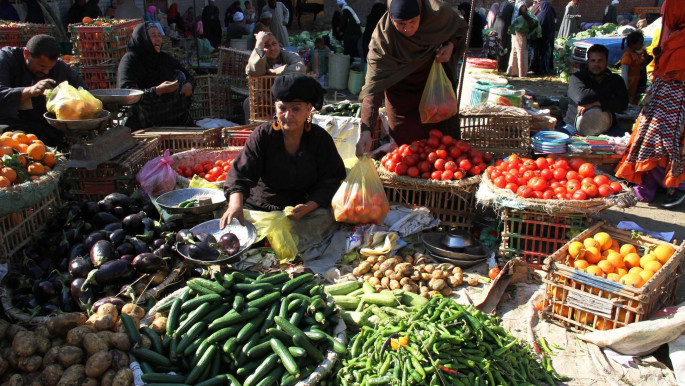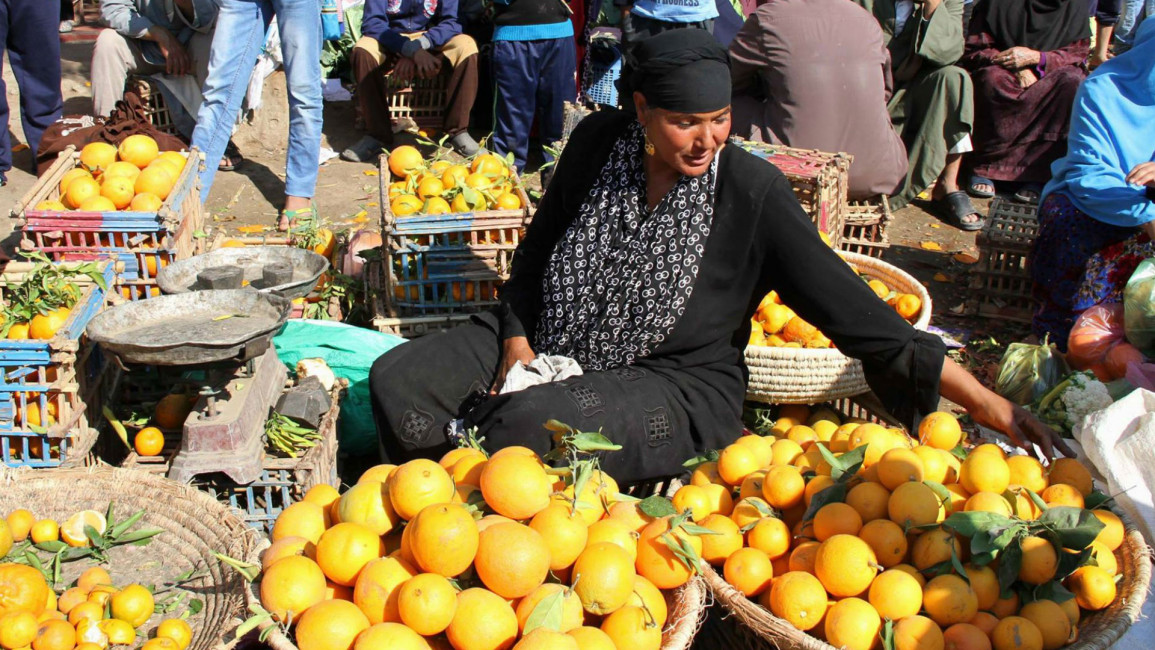Concerns grow in Egypt as food prices soar
Okra is currently being sold at an unheard of $3.80 a kilo, while tomatoes cost $1.80 a kilo. In a country where 40 percent of people live off less than $2 a day, this is having a dramatic impact on people's lives.
Many poor Egyptians look forward to the rare treat of eating meat at iftars, the evening meal that breaks Muslims' fast during Ramadan.
However, it looks increasingly unlikely popular domestic beef will top most people's fatta as it now cost about $10 per kilo. Fatta is a Ramadan favorite made of rice and bread topped with meat in a garlicky tomato and vinegar sauce.
| As prices continue to rise in Egypt salaries have not increased proportionally. |
Pay has not increased to match the rising prices in Egypt. The minister of supply and internal trade, Khaled Hanafi, recently told Egyptians to keep things in perspective because stable goods such as rice, milk and eggs have not increased in price.
Hanafi said the government was working to ensure low-income families have access to affordable goods in government-run cooperatives and stores.
Subsidised government stories have recently reduced prices by 20 to 25 percent in an attempt to keep them low during Ramadan. His ministry is also delivering subsidised goods to poor areas.
The minister said prices would soon return to normal, and had increased because of the yearly harvest cycles.
Not all officials have been so eloquent. Atif Yaqoub, the head of the consumer protection authority, recently said: "If okra is too expensive, eat potatoes."
Yaqoub defended his statement on television by telling the public not to accept high prices and to boycott products until prices fell.
Mona al-Garf, head of the Egyptian Competition Authority said prices may have increased because of collusion between unscrupulous traders and poor transport networks.
Umm Asmaa, a 40-year-old resident of Boulaq al-Dakrour one of Cairo's largest informal settlements, cleans houses in the upper-class areas of Zamalek and Garden City.
Sometimes she saves enough to buy a chicken at the end of the week and her sister, who runs a butchers shop, occasionally gives her some meat.
 |
|
|
The price of vegetables has soared [Madiha Kassem] |
Umm Asmaa complained about the rising prices: "A cucumber is now six pounds a kilo (80 cents). To hell with anyone eating cucumbers in Egypt."
She says prices have increased because sellers are greedy and governments no longer have any control over the market. This is especially worrying with Ramadan around the corner when prices traditionally rise.
"I work hard but only make around 750 pounds ($98) a month. How can I buy food when prices are so high?" Umm Asmaa added.
Mohammad Nader is a sales executive who lives in the middle-class area of Hadayiq al-Maadi. The 29-year-old newlywed spends around 500 pounds ($66) a month on groceries, five years ago he was spending half that.
"Basic goods, electricity and gas have all increased in price. My wife and I have had to stop eating out and buying kebabs,” Nader added.
Even though prices will increase further in Ramadan he is still looking forward to eating kebab and qatayef, sweet mini deep-fired pancakes filled with cheese or nuts.
Neamat Khalifa is a manager at an anti-poverty NGO and lives in the expensive villa filled al-Maadi neighbourhood of Cairo. The 48-year-old spends 1,000 pounds ($131) a month on food for her family of four, double what she used to spend five years ago.
"Prices have increased because of political instability in the country after the revolution. I've stopped buying expensive meats like prawns and pigeon. In Ramadan prices always increase by about 10 percent because of the high demand," Khalifa said.


